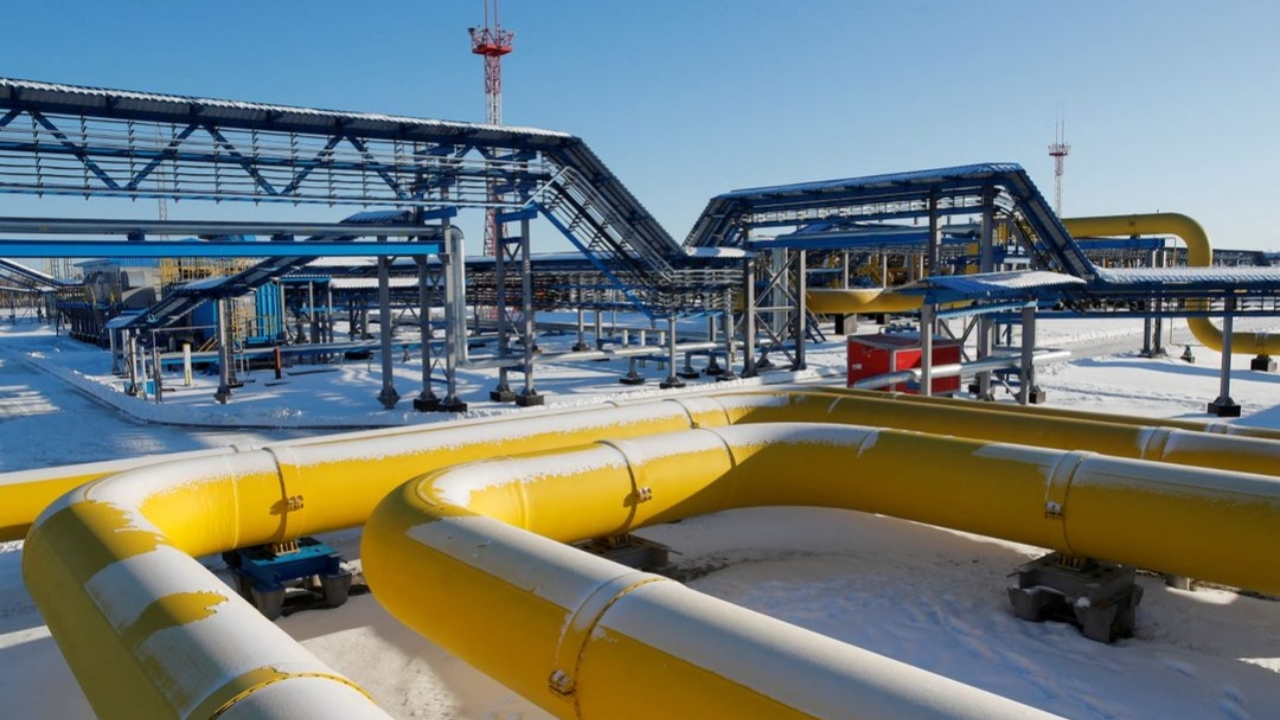Kazakh Energy Minister Almassadam Satkaliyev unveiled the country’s plans to start the transit of Russian natural gas to neighbouring Uzbekistan by late October.
“Repair operations underway on Kazakh territory are currently being completed,” Interfax quoted Satkaliyev as saying on Wednesday.
“They are connected with construction works, with separating a line for metering of gas. I think that as those works are completed we will be able to announce the beginning of transit shortly,” he added.
These operations, involving the construction work and the establishment of metering gas lines, are scheduled for completion by the end of October, he pointed out.
The Kazakh authorities were discussing transit of Russian gas to Uzbekistan in the amount from 1.5 billion to 10 billion cubic meters, a move hailed as financially advantageous for Kazakhstan, promising additional revenues.
Last year, Tokayev and his Russian counterpart Vladimir Putin discussed prospects for Russia, Kazakhstan and Uzbekistan to establish a Russia-initiated “trilateral gas union.” In January 2023, the energy ministries of Uzbekistan and Kazakhstan signed a cooperation plan with Gazprom.
Addressing Western media's allegations of political motives behind Russia's gas transit proposal to Uzbekistan, Kazakh officials emphasize their commitment to assessing the project's economic viability. They maintain that the initiative lacks any political context from their perspective.
Relations between Kazakhstan and Russia took a hit after President Kassym-Jomart Tokayev said Kazakhstan would not recognize the independence of the Donetsk and Luhansk regions of Ukraine. Kazakhstan also did not assist Russia in circumventing Western sanctions.
Despite recent diplomatic challenges that strained relations between the close partners, the two nations continue to collaborate in the energy sector. Both countries heavily rely on their oil and gas industries and close economic, technological and transportation partnerships.
Uzbekistan, one of the world's two double landlocked countries, faces unique challenges in accessing global markets. Rich in hydrocarbons, the nation shares borders with Kazakhstan, Kyrgyzstan, Tajikistan, Afghanistan, and Turkmenistan. Uzbekistan's proven crude oil reserves rank 46th globally, while its natural gas reserves place it 19th among countries worldwide, measuring 1.84 trillion cubic meters.
Alexander Frolov, Deputy Director General of the Russian National Energy Institute, highlighted Uzbekistan's need to diversify imports, especially after gas supplies from Turkmenistan were disrupted due to extreme winter conditions. Meanwhile, Gazprom's ability to swiftly organize gas supplies, leveraging Soviet-era gas transportation capacities like the Central Asia-Center gas pipeline, offers a reliable alternative.







 President Ilham Aliyev shed light on the evolving contours of the peace process with Armenia during an international conference in Baku this week. ...
President Ilham Aliyev shed light on the evolving contours of the peace process with Armenia during an international conference in Baku this week. ...
 Azerbaijan and Armenia started the process of demarcation of their border on Tuesday, with the installation of the first border markers based on ge...
Azerbaijan and Armenia started the process of demarcation of their border on Tuesday, with the installation of the first border markers based on ge...
 Iran and Pakistan have signed eight cooperation documents in various fields, and agreed to strengthen ties to fight terrorism in the region.
Iran and Pakistan have signed eight cooperation documents in various fields, and agreed to strengthen ties to fight terrorism in the region.
 As the conflict between Ukraine and Russia escalates, the strategic importance of Kharkiv, Ukraine's second-largest city, has come sharply into focus.
As the conflict between Ukraine and Russia escalates, the strategic importance of Kharkiv, Ukraine's second-largest city, has come sharply into focus.
 Iranian President Ebrahim Raisi expressed Tehran’s readiness to participate in significant development projects in Sri Lanka during the inauguratio...
Iranian President Ebrahim Raisi expressed Tehran’s readiness to participate in significant development projects in Sri Lanka during the inauguratio...



